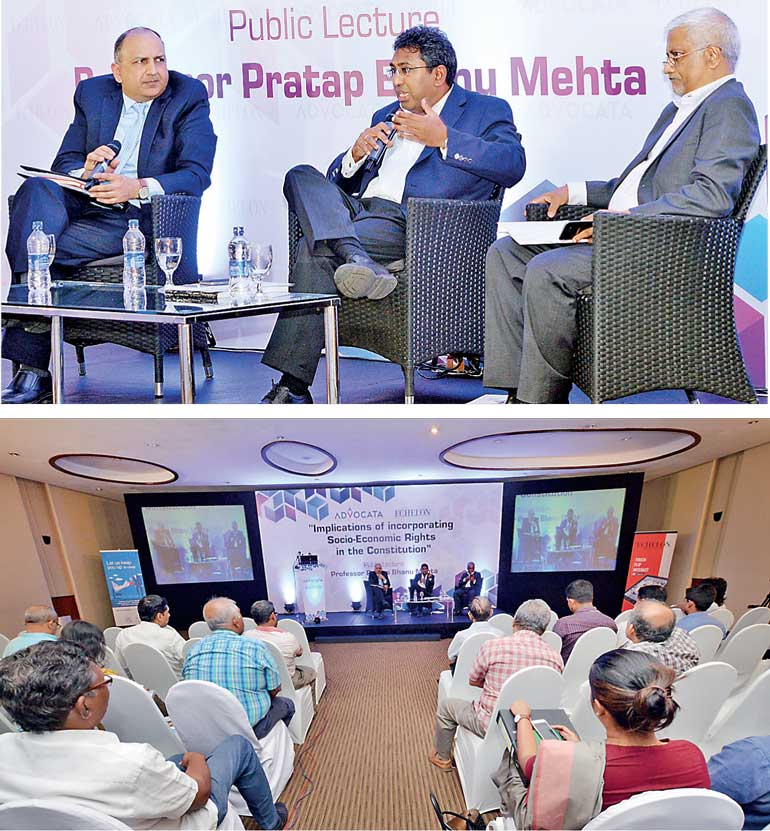Saturday Feb 21, 2026
Saturday Feb 21, 2026
Friday, 24 February 2017 00:00 - - {{hitsCtrl.values.hits}}
 By Himal Kotelawala
By Himal Kotelawala
Though it may greatly satisfy civil society activists on a superficial level, there is little evidence to suggest that the constitutionalisation of socioeconomic rights will make a vast difference to governance, a senior political scientist with extensive international and South Asian experience said on Tuesday.
Delivering a public lecture on the implications of incorporating socioeconomic rights to the proposed new constitution, Prof. Pratap Bhanu Mehta said that any difference made will be at the margins.
It does have its uses, said Prof. Mehta, in that it can sometimes allow the judiciary to hold the executive to account in procedural issues. However, though introducing such rights is just a matter of including an article in the Constitution, what transpires after will determine its true value.
“The left will be happy; civil society will be happy. But what happens after that? That remains an unresolved question,” he said.
Prof. Mehta commended the document put together by the Sri Lankan select committee, noting its “great emphasis” on rights that need to be protected such as the right to privacy, etc. “I think it’s inevitable that some of form of socioeconomic rights will be included in any 21st century constitution.
The momentum in that direction is very high. My only recommendation for consideration is if any constitution does end up incorporating socioeconomic rights, it should at the same time provide a clear legislative framework to be put underneath it,” said Prof. Mehta.
Once the right has been incorporated, he said, specify which national laws and practices it will depend on. Prof. Mehta cited the European Union (EU) Charter of Fundamental Rights Article 35 on healthcare, which reads “everyone has the right to preventative healthcare and the right to benefit from medical treatment under conditions established by national law and practices.”
“It’s a conditional law. What you need to do is specify what these national laws and practices are. Otherwise you might end up with the paradox Brazil ended up with,” said Prof. Metha.
Brazil, he recalled, a country where the right to health is rigorously litigated with tens of thousands of active cases a year, saw the propagation of a right to health which ended up benefiting the privileged more than it did the poor.
Warning against leaving things open-ended in the constitution, Prof. Mehta reiterated the importance of carefully constructing a legislative framework that specifies the national laws that any inclusion of socioeconomic rights will depend on.
Pix by Shehan Gunasekara

